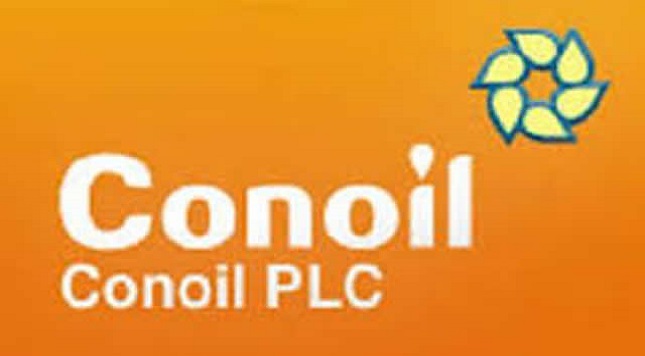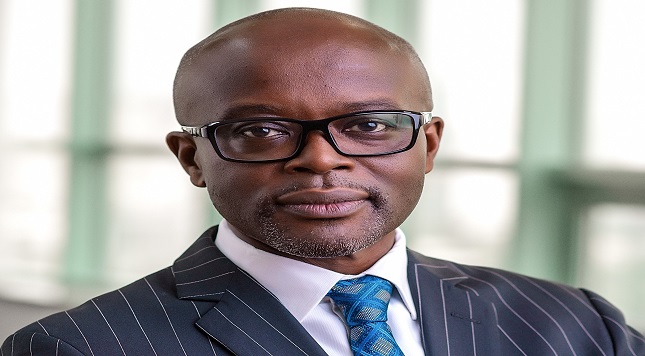General News
Digital Platforms Provide Opportunity to Target Export Markets-Ehimuan –
Juliet Ehimuan Chiazor is the country manager, Google Nigeria, the global Internet-software giant; with specialisation in internet search, cloud computing, and advertising technologies.
Ehimuan has registered her name as a Nigerian woman of substance having led somewhat revolution to see more Nigerians and businesses get online. Her experience spans international markets primarily in technology, new media, and Oil & Gas industries.
In 2011 she was listed in Forbes magazine as one of the top 20 youngest power women in Africa. The Nigeria Computer Society also awarded her “IT Personality of the Year” in 2012.
In this interview with peter ugwu, Ehimuan radiates her passion for small and medium enterprises (SMEs) and talks about the recent Google’s Share Your Nigeria Content (SYNC) conference.
About SYNC
SYNC stands for Share Your Nigerian Content. SYNC Nigeria 2013 was a 3-day outreach event aimed at helping key individuals, businesses and communities in Nigeria better understand and leverage the power of the internet for social and economic growth.
It included workshops, trainings, demos and 1-on-1 sessions aimed at helping to share more knowledge required for effectively using internet tools to innovate and grow.
The initiative also anchors on the findings of the newly released Dalberg Impact of the Internet study which further reinforces Google’s position on the internet’s power to drive social and economic change.
In addition to the goal of knowledge sharing and forging closer ties with these key communities, this initiative is also aimed at inspiring a new influx of high quality Nigerian content to the internet space.
There is a lot of great content in Nigeria, attractive to a local and global audience; and digital platforms provide an opportunity to target export markets.
You Mentioned the Dalberg Study? What is that?
Google commissioned Dalberg to perform an ‘Impact of Internet’ study which examines the Internet’s impact on, and potential contribution to, social and economic development in Nigeria.
The study was officially launched on June 3rd, 2013 at the Transcorp hilton in Abuja with the Minister of Communication Technology, Ms Omobola Johnson giving a keynote address.
The report highlights the potential of the Internet for social and economic development. It also seeks to help policy makers understand how their constituencies already use the Internet, where the opportunities lie, what future potential for social impact the Internet offers.
It specifies the need for government to continue to play the lead role as visionaries and first adopters of new technologies.
The report revealed that of all the countries covered in the study (Nigeria, Senegal, Kenya and Ghana), Nigeria shows the greatest potential in using the Internet to promote good governance, eCommerce and finance, though these sectors have not yet produced solutions that have spread across the region.
It re-emphasizes that continuing investment in core infrastructure and the rapid implementation of the broadband plan will positively impact on economic growth and employment.
What Other Activities were Part of SYNC Nigeria?
The first day was about sharing local creative content. We had 12 hours of Google+ hangouts, where different Nigerian artists performed to a global online audience via Google+ hangouts.
We also had one-on-one intimate hangouts with different personalities connecting with people around the world. Themes ranged form cake making, to entertainment.
The second day was focused on business. It comprised of highly interactive sessions with advertisers, publishers, media agencies and key influencers.
Themes included new business models,successfully monetizing online, and effectively leveraging online reach channels.
There’s a great opportunity for bid brands to expand their marketing reach by adding a digital component to their advertising campaigns.
This is very important, because more users are getting online to look for information, and business need to be able to meet these users.
Day three focused on Nigerian content creators, social media advocates and other media experts in a bid to help them better understand how to take advantage of the internet to boost content distribution.
The internet presents huge opportunities for Nigeria’s creative and content production industry. We intend to work with this community as well as others to fully harness internet tools and platforms like Youtube that have proven to be very successful across the world.
Result of Google’s Empowerment of SMBs in Nigeria Get Online since 2011
In order to ensure that more locally relevant content gets online, in September 2011, we launched, “Get Nigerian Businesses Online”.
We provided free tools to support Small and Medium Businesses (SMBs) in creating websites that can load on mobile phones.
The businesses were also provided with up to 10 free email address and listing on Google Maps. We also ran a number of workshops to train people on getting online and also succeeding online.
Through our SMB initiatives, we have been able to get over 40, 000 SMBs online, and we have seen some great success stories across multiple industries.
I am constantly inspired by the successes I hear about. Very recently, I met another SMB who’s business has grown tremendously by getting online.
She runs an online bridal shop, a business she started online after attending one of our SMB training programs.
Prior to that she had been relying on word of mouth referrals with very limited results. Now her sales have increased a hundred fold.
After Getting the Contents Online, How About Accessibility?
Our strategy in Nigeria is on three things. One is access, which is exactly what you have mentioned. We are earnestly looking at ways (in collaboration with stakholders in the private sector and government) to make the internet more available and affordable to Nigerians.
We have seen more submarine cables land on the West Coast like MainOne and GloOne, and international bandwidth prices have dropped as a result, but there are still last mile challenges.
We have a number of initiatives under the Access bucket. We have a Point-of Presence at the local exchange and our services are cached locally.
We also have an access program with Universities where we provide last mile grants and pay for international bandwidth for 3 years to support the Universities in getting online.
The program also includes free deployment of Google Apps software for education and training of staff and students
Just recently, Mr. President approved the strategy for broadband for Nigeria, which was put together by a Committee and anchored by the Minister of Communication Technology.
We were part of that committee and have served in others created by the Ministry. It is also clear that accelerating broadband growth in Nigeria is top priority for Ministry of Communications Technology, which is great.
Trust as an Issue in Online Transaction
Yes, the issue of e-payment and trust or fear among some people is quite natural. A lot of people are still cautious about making payments online.
However, we are seeing an increasing trend in the adoption of eCommerce and some strong eCommerce players emerging in the marketplace.
We are also seeing models that “pay on delivery” as an attempt to overcome the trust barrier. As more people successfully transact online, confidence in ePayments will increase.
It is important that providers ensure basic security provisions in the design of their services. A positive customer experience is key to drive growth.
It is quite clear that the Central Bank of Nigeria (CBN) is trying to drive e-payment across Nigeria (with the cashless policy and other initiatives); so we expect to continue to see a positive trend.
YouTube, Like Google Would Observe Is A Platform For Developers To Upload Their Contents and Make Some Money, How Have Nigerians Benefited From This?
I think what is important to mention at this point is there are great opportunities and we are seeing Nigerians take advantage of those opportunities.
YouTube is an online video content sharing platform; we have a lot of great content coming from Nigeria like Nollywood movies, music concerts, educational, political and news contents. In essence, individuals and organisations are leveraging the platform to share that content and reach a wider audience.
For example, there are some content producers who are extending their businesses online through YouTube, uploading movies online and monetizing the traffic.
There is global demand for Nollywood content, and Youtube provides a great way to tap into the export market.
Partnership between Google and the Financial Sector in Nigeria
We work with organisations across multiple sectors. Our focus is on digital technology which is applicable to every sector – insurance, media, banking, FMCG, and others.
During my presentation at SYNC I shared the example of GTBank as a business taking advantage of the internet to expand its customer service.
When GTBank launched its mobile money service, they created a GT Community on Google+ which was a destination where uses could go, chat with experts, ask questions, and share comments about mobile money and other GTBank products.
They also ran a Google+ hangout as a way to connect to customers. Customers could dial into the hangout, ask questions and interact with the bank service staff.
The bank also used online ads to drive traffic to its various digital assets including NdaniTV channel on Youtube.
Another example is Ultima Studios. Last year, in parallel to the offline “Project Fame” talent competition, Ultima created a wild card competition on Youtube.
This increased user interaction and engagement as users could post comments online and interact with fans.
So, that is an example of a company extending its customer service offering by leveraging technology. We’ve seen other Nigerian companies successfully create digital assets in a similar way.
The internet revolution is definitely real in Nigeria and we are excited by the momentum that is building. This is just the beginning. As broadband access increases, we expect to see great innovations in the Nigerian digital space.
General News
Conoil Bonanza Winners Emerge

Conoil Plc is spreading joy this Valentine season as the first group of winners in its Valentine Bonanza promotion have been announced and rewarded. Launched on February 14, the campaign continues to delight customers at participating retail outlets.

The initial raffle draw, conducted on February 21, saw fortunate customers receive ₦10,000 worth of free petrol each. The draw was carried out publicly, with media representatives present to ensure full transparency. With the promotion still ongoing, more customers have the opportunity to join in and potentially be among the next winners.
A Conoil Management spokesperson explained that the initiative is a way to show appreciation to loyal customers for their ongoing support. “Our customers have responded impressively to the bonanza, with strong participation recorded across our stations,” the spokesperson said.
The second and final phase of the promotion is now in motion. Customers who purchase at least 10 litres of petrol at any participating Conoil station remain eligible to win in the grand finale raffle.
The grand finale is set for February 28 at 12 noon. Motorists in Lagos and Ogun states are encouraged to visit Conoil outlets to collect their tickets and take part in the exciting conclusion of this Valentine celebration.
General News
PalmPay Couples Show How Love Is Funded Digitally

PalmPay users took to the #LoveWithPalmPay campaign to show how experiences are powered through seamless banking.

It’s the month of love and social media has been filled with couples showing affection with gifts. As digital payments become embedded in everyday life, the way relationships are planned, funded, and experienced is evolving.
Recent insights from SBM Intelligence 2025 ‘Love in the Air’ report show that despite economic pressures, most Nigerians still set aside dedicated budgets for Valentine’s Day, with the largest percentage planning to spend between N51,000 and N100,000, while less than 5% are willing to spend above N500,000.
This growing intentionality highlights the need for platforms that help people manage their money more effectively, offering features like free transfers and tools that make it easier to send, track, and preserve funds while still showing up for meaningful moments.
Through the #LoveWithPalmPay campaign, PalmPay set out to show how the platform is enabling users to plan, pay, and celebrate meaningful moments with greater ease.
During the Valentine’s season, PalmPay invited couples across Nigeria to share their stories through the #LoveWithPalmPay campaign, celebrating how digital banking supports their individual expressions of love.
The campaign saw strong participation, with many PalmPay couples submitting entries that showcased how they use the app to plan surprises, pay for outings, and stay connected through everyday transactions.
From these entries, four couples were selected, each showcasing how PalmPay has enabled fast and reliable transactions in key moments.
One video from @simply.omotoshan, one of the selected couples, captures the role of seamless payments in making their spontaneous moments possible.
She said in her entry video: “Our cutest money moment with PalmPay was when we planned our Valentine’s picnic and realized we had forgotten half of the things we needed; literally, half of everything. We rushed to the mall to get cakes, food, decorations, and all the essentials. When it was time to pay, we used PalmPay.
“The transaction was smooth, fast, and stress-free. In no time, we were done setting up our Valentine-themed picnic with everything perfectly ready. Honestly, all our experiences with PalmPay have been easy and satisfying, but this one is definitely our cutest money moment. Thank you, PalmPay.”
A testimonial from the fourth selected couple, Mohammed and his wife, reflects his excitement: “Hello PalmPay, thank you so much for selecting us as one of the winners of the #LoveWithPalmPay campaign. We truly appreciate this. My wife and I are very grateful. Thank you, PalmPay, for the love and support. We’re so happy and thankful for the N100,000 reward. We love you, PalmPay, and long live PalmPay. Thank you so much.”
Beyond the feel-good stories, the campaign reflects a broader shift: fintech is no longer just about transactions, it’s about enabling experiences. Reliable payments, fast transactions, and accessible financial tools reduce the friction that can disrupt important moments, allowing users to focus on connection rather than logistics.
From paying for dinner to managing other expenses, PalmPay continues to demonstrate how digital financial services support modern relationships, proving that in today’s economy, love is not only felt, it’s funded digitally.
General News
KPMG Strengthens Africa Leadership to Support Long‑term Growth Across the Continent

KPMG has appointed Tola Adeyemi as Chief Executive Officer for KPMG one Africa, alongside the addition of Professor Olayinka David‑West and Dr. George Njenga as independent members of the Africa Governance Council (AGC).

Effective from March 2026, the appointments reinforce the firm’s leadership expertise, underscore a long‑term commitment to Africa and highlight confidence in the continent’s growth potential.
“Africa is one of the most dynamic and promising regions in the global economy, and KPMG is committed to playing a meaningful role in its growth story,” said Tola Adeyemi, incoming CEO for KPMG One Africa.
He continued: “It is a privilege to step into this role at such a pivotal moment for both KPMG and the continent. I look forward to building on our strong, connected and high‑performing base to deepen collaboration and deliver consistent quality and impact across our markets.”
KPMG is recognised globally for its commitment to quality, integrity and professional excellence, supported by a strong global network of member firms. Trust remains the foundation of the audit and accounting profession, with high standards of governance, ethics and audit quality increasingly demanded across Africa’s public and private sectors.
KPMG One Africa’s approach brings the continent closer together with strong leadership to strengthen cross-border collaboration and offer shared expertise and consistency which is business‑critical to help clients navigate complex risks and unlock sustainable growth opportunities.
Commenting on the appointment, Professor Ben Marx, Chairman of the Africa Governance Council, said: “Tola Adeyemi is exceptionally well positioned to lead KPMG One Africa. In addition to his global perspective as a member of the KPMG Global Council, he brings significant influence and credibility as a respected business leader across the continent.”
The appointments of Professor David‑West and Dr Njenga to the Africa Governance Council, which provides board level governance, further strengthens independent oversight, bringing strong academic credentials alongside deep strategic and business expertise.
“These appointments reinforce KPMG’s commitment to strong governance, accountability and leadership depth,” Marx added. “They complement our established African leadership team, in‑country managing partners and regional senior partners, further enhancing our client‑centric approach across Africa.”

 E-Business3 days ago
E-Business3 days agoAfDB, UNDP Launch $10Bn AI Initiative for Africa

 Telecom3 days ago
Telecom3 days agoGrey Expands Cross-Border Banking with USD Accounts, USDC Support

 General News2 days ago
General News2 days agoKPMG Strengthens Africa Leadership to Support Long‑term Growth Across the Continent

 News3 days ago
News3 days agoDG NITDA Reaffirms FG Commitment to Responsible, Inclusive AI

 News3 days ago
News3 days agoLotus Bank, REA Seal N100Bn Deal to Power Rural Nigeria

 E-Financial3 days ago
E-Financial3 days agoCBN Cuts MPR by 50bps to 26.50% as Inflation Eases for 11th Month

 E-Financial3 days ago
E-Financial3 days agoKuda Bank Teams Up with Lovers & Frnds for Inclusive Valentine’s R&B Bash

 General News3 days ago
General News3 days agoKaspersky Enhances Network Detection and Response Capabilities with KATA 8.0 Release














